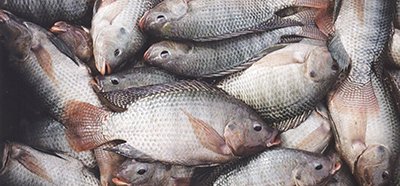
Considered as an excellent source of fatty acids, fish are highly recommended for a healthy and balanced diet. These foods are not only rich in nutrients, but also possess many properties. However, it should be noted that not all fish are so good for health, especially if they are farmed. Some of them can be dangerous to health, such as tilapia.
A good and popular fish, but at what price?
Tilapia is a fish with white flesh. It is one of the most consumed fishes in the world. It is especially appreciated for its short cooking time and its neutral taste that goes with everything!
Tilapia also has important nutritional values. It is notably rich in fatty acids that the body can not synthesize, vitamins of group B, vitamin D, magnesium, as well as proteins of very good biological value. This fish can thus be considered as a food of choice to be included in its diet for a balanced diet.
Tilapia is also distinguished by its ability to reproduce quickly and adaptability to any environment. That's why it's one of the most popular salmon fish. Tilapia can live in freshwater or in the mother and feeds on the lower trophic level of the food chain. There is a real enthusiasm for this fish, which has increased its production significantly lately.
Indeed, more than 75 countries around the world do tilapia farming , but it is China that holds the lion's share in this section of the aquaculture market. Its production is estimated at thousands of tons.
Tilapia is sold at affordable prices, which is why it is very popular. However, this fish can be dangerous to your health. Some countries adopt dubious husbandry techniques and are thus responsible for the harmful nature of this fish.
Why tilapia is harmful to our health?
Several factors should be considered in assessing the adverse effects of farmed tilapia. Depending on its origin, this fish may present a real health hazard.
A poor ratio of fatty acids:
Fatty acids are essential substances for the proper functioning of our body. The latter is not able to synthesize them.
To make the most of their benefits, it is important that the right Omega-6 / Omega-3 ratio is respected. Ideally, the ratio should be between 1/1 and 4/1. But does the farming tilapia respect this ratio?
According to a study by the University of Wake Forest University of Medicine in the United States, the Omega-6 / Omega-3 ratio of farmed tilapia reached 11/1.
Remember that high levels of Omega-6 prevent the body from using its Omega-3 intakes. This presents an environment conducive to the development of cardiovascular diseases as well as to inflammatory and allergic problems.
The dioxins:
Dioxins are organic pollutants resulting from a combustion process. These substances tend to accumulate in certain levels of the food chain and end up in the human body due to the consumption of products contaminated by dioxins.
These substances are present in eggs, meat, but also in farmed fish in general. The latter concentrate high levels of dioxins to which humans expose themselves by consuming them.
Dioxins are hazardous to health. They have been linked to higher cancer risks. The International Agency for Research on Cancer (IARC) has classified them as carcinogenic to humans.
Pesticides and antibiotics:
With the aim of mass production, farmers may sometimes fail to respect the standards of fish farming. The latter are collected in small basins, in fish farms. This situation increases the risk of disease development. To avoid this, farmers use antibiotics and pesticides to prevent contamination of fish and get rid of sea lice.
In China, especially, farming techniques do not comply with European and American standards. That said, fish from this country can be very dangerous. In addition, it has been reported that fish in Chinese fish farms are fed to poultry and fish droppings.
Tilapia Farming is not as good for health as one thinks. If you like the taste of this fish, prefer the wild one, to avoid all the aforementioned problems and to preserve your health.
When you are going to buy fish, especially in supermarkets, take time to read the label, sometimes the provenance is quoted!
I love tilapia, infact it is one of my favourite fishes. It is just sad that the fish farming standards adopted by some farmers are so poor thereby exposing consumers to harmful substances.
The safest solution is to consume fresh tilapia that are caught directly from fresh waters or ocean.
I like it too, just be sure to buy wild caught tilapia
You are right. Thanks for your advice. Cheers
Humans ruin everything :/